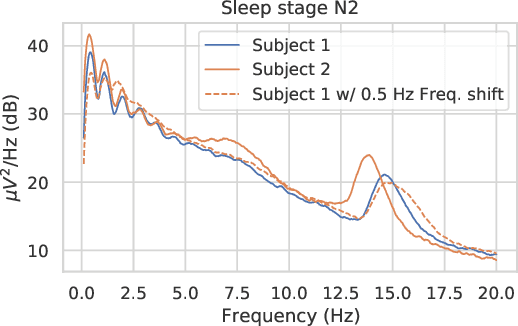CADDA: Class-wise Automatic Differentiable Data Augmentation for EEG Signals
Paper and Code
Jun 25, 2021



Data augmentation is a key element of deep learning pipelines, as it informs the network during training about transformations of the input data that keep the label unchanged. Manually finding adequate augmentation methods and parameters for a given pipeline is however rapidly cumbersome. In particular, while intuition can guide this decision for images, the design and choice of augmentation policies remains unclear for more complex types of data, such as neuroscience signals. Moreover, label independent strategies might not be suitable for such structured data and class-dependent augmentations might be necessary. This idea has been surprisingly unexplored in the literature, while it is quite intuitive: changing the color of a car image does not change the object class to be predicted, but doing the same to the picture of an orange does. This paper aims to increase the generalization power added through class-wise data augmentation. Yet, as seeking transformations depending on the class largely increases the complexity of the task, using gradient-free optimization techniques as done by most existing automatic approaches becomes intractable for real-world datasets. For this reason we propose to use differentiable data augmentation amenable to gradient-based learning. EEG signals are a perfect example of data for which good augmentation policies are mostly unknown. In this work, we demonstrate the relevance of our approach on the clinically relevant sleep staging classification task, for which we also propose differentiable transformations.
 Add to Chrome
Add to Chrome Add to Firefox
Add to Firefox Add to Edge
Add to Edge